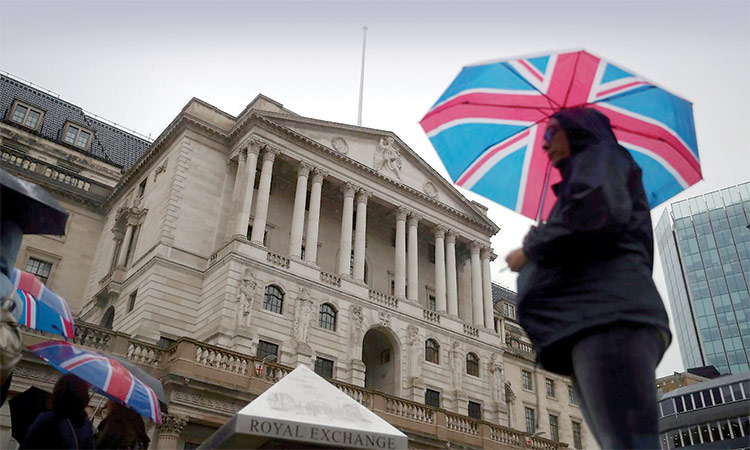Bank of England’s Governor says inflation pressure is on the wane

Picture used for illustrative purposes only.
In a speech he will deliver on Friday at a central banking conference organised by the Federal Reserve in Jackson Hole, Bailey said the knock-on impacts of the leap in prices in 2022 appeared less damaging than the BoE had feared.
“The second-round inflation effects appear to be smaller than we expected. But it is too early to declare victory,” he said in an advance version of the text provided by the BoE.
After a sharp fall in Britain’s headline inflation rate, the BoE cut its main interest rate on Aug. 1 to 5 per cent after keeping it at a 16-year high of 5.25 per cent for nearly a year.
Bailey said then that the BoE would “be careful not to cut interest rates too quickly or by too much”.
In the text of Friday’s speech, Bailey said he was hopeful that the economic pain often associated with high interest rates to tackle high inflation might be avoided this time in Britain.
“Tentatively, it appears to me that the economic costs of bringing down persistent inflation - costs in terms of lower output and higher unemployment — could be less than in the past,” he said.
“This is consistent with a process of disinflation which is steady and more in keeping with a soft landing than a recession-induced process,” he continued.
But he reiterated the BoE’s guidance that interest rates would have to “remain restrictive for sufficiently long” and “the course will therefore be a steady one”.
Britain’s economy has grown this year more strongly than the BoE and most other forecasters expected - a welcome inheritance for the new government of Prime Minister Keir Starmer - while an acceleration in wage growth has slowed.
Bailey said he was “cautiously optimistic” that inflation expectations were better anchored.
“We are now seeing a revision down in our assessment of that intrinsic persistence, but this is not something we can take for granted,” he said.
“We are now seeing a revision down in our assessment of that intrinsic persistence, but this is not something we can take for granted,” Bailey said in a speech text released by the central bank, ahead of its delivery at a central banking conference organised by the Federal Reserve in Jackson Hole, Wyoming.
On Aug. 1 the BoE cut its main interest rate to 5 per cent after keeping it at a 16-year high of 5.25 per cent for nearly a year.
Bailey said then that the BoE would “be careful not to cut interest rates too quickly or by too much”.
In the text of Friday’s speech, Bailey said recent signals from the economy meant he was “cautiously optimistic that inflation expectations are better anchored”.
“The second-round inflation effects appear to be smaller than we expected. But it is too early to declare victory.”
Bailey said it remained to be seen whether inflation pressures would ease off to a level consistent with the BoE’s 2 per cent inflation target on a sustained basis “and what it will take to make that happen”.
Investors were pricing a roughly one in three chance of the BoE cutting interest rates by a further quarter-point at its September meeting. Earlier on Friday at the Jackson Hole event, Federal Reserve Chair Jerome Powell said the time had come for the US central bank to cut borrowing costs.
It remained to be seen whether inflation pressures would ease off to a level consistent with the BoE’s 2 per cent inflation target on a sustained basis “and what it will take to make that happen,” Bailey said.
While British inflation returned to its 2 per cent target in May and June, it rose in July and the BoE forecasts it will reach 2.75 per cent by the end of the year and remain above target all next year.
Investors were pricing a roughly one in three chance of the BoE cutting interest rates by a further quarter-point at its September meeting. Economists polled by Reuters expect one more quarter-point rate cut this year and for rates to fall to 3.75 per cent by the third quarter of 2025.
Earlier on Friday at the Jackson Hole event, Federal Reserve Chair Jerome Powell said the time had come for the US central bank to cut borrowing costs.
The Bank of England cut interest rates from a 16-year high earlier this month after a tight vote by its policymakers who were split over whether inflation pressures had eased sufficiently.
Governor Andrew Bailey led the 5-4 decision to reduce rates by a quarter-point to 5 per cent and he said the BoE would move cautiously going forward.






